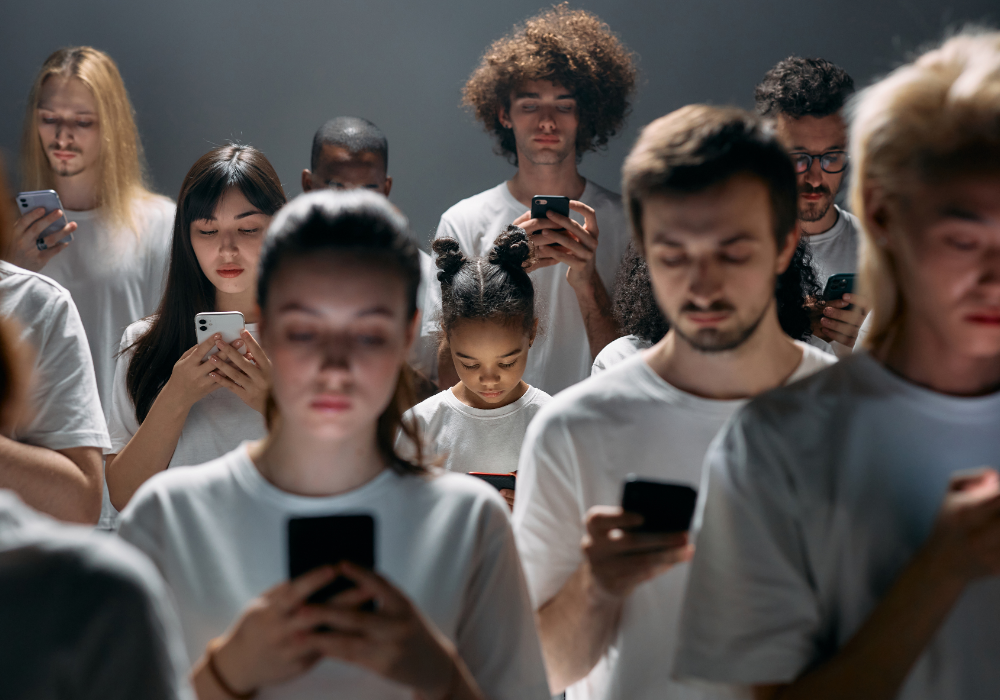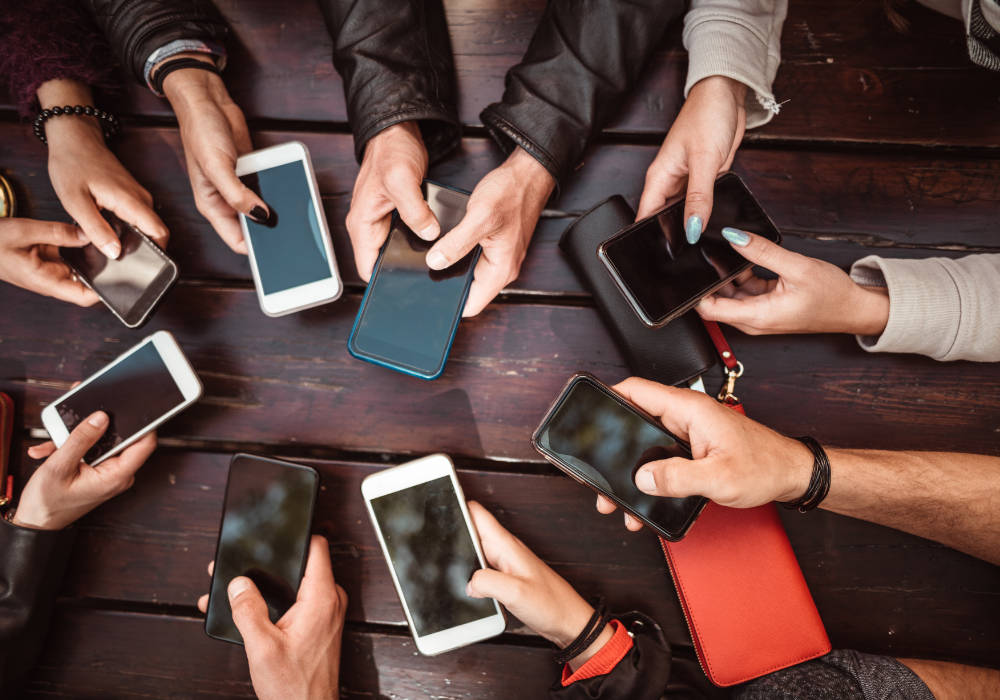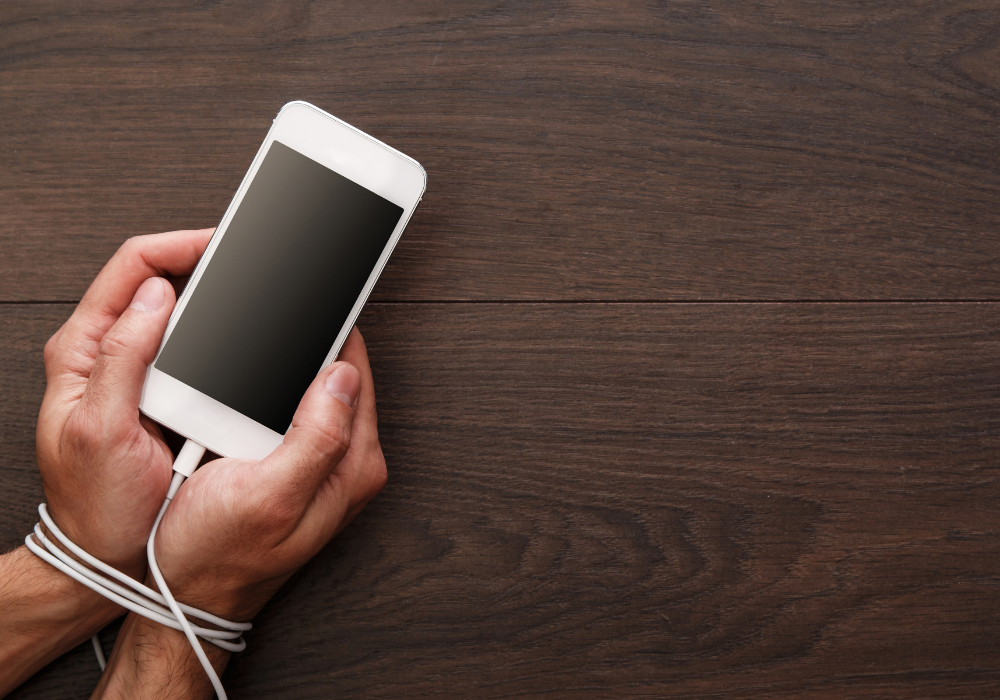You’re not broken—the world just forgot how to let you feel good.

If you’ve ever caught yourself wondering why nothing feels as good as it used to, you’re not alone. Somewhere along the way, pleasure got replaced with productivity, rest turned into guilt, and joy became something you have to earn. It’s not that you’ve changed—it’s that the world around you has. We live in a culture that glorifies burnout, monetizes our attention, and shames us for slowing down.
Simple joys—like taking a walk, daydreaming, or doing absolutely nothing—are now framed as lazy or indulgent. We’re constantly connected, always performing, and rarely present. And when we do carve out time for ourselves, it’s often rushed, distracted, or weighed down by expectations. This isn’t a personal failure. It’s a systemic one. The modern world is slowly choking the life out of pleasure—and most of us haven’t even noticed it happening.
1. Hustle culture turned joy into a distraction instead of a necessity.

Somewhere along the way, doing what you love started to feel like a waste of time. As highlighted by Jada Butler for Soul Via Sole, hustle culture has been linked to negative mental health outcomes, including increased stress and burnout.
Even hobbies have become side hustles. Every moment not spent being productive feels like you’re falling behind. And slowly, the things that used to make you feel good start to feel like guilty indulgences.
This isn’t just toxic—it’s exhausting. Constantly chasing output leaves no room for presence, spontaneity, or play. You weren’t designed to be in motion 24/7. You’re allowed to do things simply because they make you feel alive. Reclaiming joy starts when you stop tying it to your to-do list. Letting yourself enjoy something just because it feels good is an act of quiet rebellion—and one that might just save your sanity.
2. Technology hijacked your attention and numbed your pleasure.

Endless scrolling, constant notifications, and algorithmic everything—technology isn’t just distracting you, it’s rewiring how you experience pleasure. The little dopamine hits from likes, clicks, and swipes feel good for a second, but they don’t satisfy. They leave you overstimulated, mentally cluttered, and emotionally disconnected. According to Jamie Waters for The Guardian, our smartphones are making us dopamine junkies, with each swipe, like, and tweet feeding our habit.
Worse, the more time you spend plugged in, the harder it becomes to enjoy slower, quieter forms of pleasure. Reading a book, watching the sun set, even having a conversation without checking your phone starts to feel…boring. But it’s not boredom—it’s withdrawal. Pleasure hasn’t gone anywhere. Your brain’s just been hijacked by systems designed to keep you addicted, not fulfilled.
3. Capitalism made joy feel like something you have to buy.

Somewhere along the way, joy got rebranded as something you need a receipt for. Vacations, self-care products, fancy dinners—they all promise happiness, but only if you can afford them. Capitalism is great at selling the idea of joy, but not so great at letting you feel it for free. Per Sean Illing for Vox, corporations have redefined happiness, turning it into a commodity that promotes consumption, which can lead to feelings of emptiness.
But the most meaningful pleasure rarely costs a dime. It’s laughing with someone who gets you, lying on the floor doing nothing, dancing around your kitchen with the music turned up too loud. When you stop chasing “lifestyle” and start paying attention to your real-life moments, everything shifts. Joy is still available.
4. Productivity culture convinced you that rest is a reward, not a right.

Rest has become something you have to earn. You’re told to “deserve” breaks after crossing off a million things, as if relaxing without guilt is a luxury instead of a human need. This mindset doesn’t just rob you of joy—it breaks your ability to recognize when your body and mind are begging for a pause. And when you do finally rest? You feel like you’re falling behind.
This constant tension between needing rest and feeling bad for taking it turns recovery into another source of stress. You scroll while you “relax,” check emails from the couch, and multitask your downtime until it doesn’t feel like downtime at all.
But here’s the truth: you don’t have to earn rest. Your worth isn’t tied to how much you produce. Real joy often starts with giving yourself permission to stop. Not later—now.
5. Social media made comparison the enemy of contentment.

You used to enjoy a quiet walk, a homemade meal, or a messy, joyful moment without needing to document it. Now, thanks to social media, those moments can feel flat if they’re not perfectly curated or getting likes. Platforms built to connect us have slowly rewired how we measure happiness—replacing satisfaction with comparison and turning even the most joyful experiences into performances.
You scroll through other people’s highlight reels and wonder why your life feels so muted in comparison. But joy isn’t Instagrammable. It’s in the blurry, unfiltered moments that don’t get posted. The constant comparison doesn’t just make you feel “less than”—it dulls your ability to fully feel what’s happening in your own life. The more you chase someone else’s version of happiness, the further you drift from your own. Joy doesn’t need to be photogenic. It just needs to be real.
6. Convenience culture stripped the soul out of everyday pleasures.

Modern life is all about speed—one-click ordering, same-day delivery, food at your door in minutes. And sure, convenience makes things easier, but it also quietly erases the small rituals that once gave life texture and meaning. Making a meal from scratch. Browsing a bookstore. Taking the scenic route. These weren’t just tasks—they were little moments of joy.
Now, everything is optimized for efficiency, and anything that takes “too long” feels like a burden. But faster isn’t always better. Slowness invites presence. Intention. Delight. When everything’s handed to you instantly, you lose the chance to savor the process. Real joy often lives in the doing, not just the result. Choosing slower, less efficient paths can feel like a luxury—but sometimes, it’s exactly what your soul needs to feel human again.
7. Chronic burnout is killing your ability to feel anything at all.

Burnout isn’t just about exhaustion—it’s about emotional numbness. When you’re constantly overwhelmed, even joy feels muted. You’re not sad, you’re just… flat. You go through the motions, check the boxes, and wait for a spark that never comes. But the problem isn’t that you’re ungrateful or broken—it’s that your system is overloaded.
Joy needs space to breathe. It needs energy, attention, and a nervous system that isn’t stuck in survival mode. When you’re always “on,” joy gets crowded out by stress hormones and mental clutter. Burnout turns beauty into background noise. Reclaiming joy doesn’t start with doing more—it starts with doing less. With resting. With saying no. With letting go of the pressure to always be fine. You’re not joyless. You’re exhausted. And that’s something you’re allowed to heal from.
8. Boredom disappeared—and with it, so did your sense of wonder.

Every spare moment is filled now. Waiting in line? Scroll. Commercial break? Check your phone. Even brushing your teeth comes with a podcast. In a world where stillness feels intolerable, boredom has gone extinct—and that’s a problem. Because boredom isn’t a flaw. It’s a spark. It’s the space where your mind can wander, stretch, and stumble into something delightful.
When every second is filled with noise or stimulation, you lose the quiet moments where joy used to sneak in. Remember lying on your back and watching clouds? Getting lost in your own thoughts? That was boredom doing its job—reconnecting you with imagination, curiosity, and creativity. Letting yourself feel bored again might feel weird at first. But in that discomfort lives the kind of wonder you can’t scroll into existence.
9. Guilt has taken the place of genuine pleasure.

Doing something purely because it feels good now comes with strings attached. Take a nap? Lazy. Order dessert? Indulgent. Buy something just for fun? Wasteful. Joy is no longer just joy—it’s a calculation. But pleasure doesn’t need to be productive, justified, or earned. It just needs to exist. And when you learn to stop apologizing for what lights you up, everything changes.
Guilt is a learned response. Somewhere along the line, you were taught that enjoyment is suspicious unless it serves a greater purpose. But the truth is, pleasure makes you human. It grounds you, restores you, and reminds you what it means to be alive. Letting yourself feel good—without shame, without explanation—isn’t selfish. It’s necessary.
10. Convenience is quietly starving your relationships.

It’s never been easier to avoid real connection. You can send a thumbs-up emoji instead of calling. You can cancel plans without even hearing someone’s voice. You can live your life in parallel with others, never truly intersecting.
Convenience makes things faster—but it also makes them flatter. The spontaneous, imperfect, deeply human stuff gets edited out. And that’s where joy used to live. In long, meandering conversations. In eye contact. In the weird inside jokes that only make sense because you were actually there. Those moments don’t come from efficiency—they come from presence.
Technology didn’t kill connection, but it did make it optional. Choosing to show up anyway, to lean into real interaction, is how you get that magic back. It’s not always easy, but it’s always worth it.
11. Constant stimulation is numbing your ability to feel real joy.

The modern world doesn’t just keep you busy—it keeps you overstimulated. Bright screens, constant noise, endless content, multitasking everything. It’s a full-on sensory flood, and your brain has to dull its responses just to keep up. That means the highs get lower. The calm gets restless. The joy gets… muted.
You’re not ungrateful or incapable of feeling happy—you’re just maxed out. When every moment is filled with stimulation, your nervous system never gets a chance to reset. Real joy often shows up in the quiet, in the space between inputs. If you want to feel again, you have to give yourself a break from the barrage. Turn the volume down. Let stillness back in. Your joy isn’t gone—it’s just buried under the noise.
12. Real joy has been replaced with quick fixes and emotional shortcuts.

It’s easier to reach for a dopamine hit than to build something meaningful. You scroll for validation. You buy something shiny. You chase a like, a buzz, a reward. And for a second, it works. But the crash always follows. Real joy—the kind that lasts—takes time. It comes from connection, purpose, and presence, not from the next new thing.
Quick fixes feel good in the moment, but they rarely satisfy. Over time, they train you to expect joy instantly, with no effort. But the deeper kind? The kind that fills your chest and slows your breathing? That comes from showing up for your life—messy, imperfect, and real. The shortcuts will always be there. Choosing the long way is what makes joy real again.